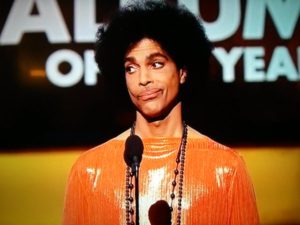So you’ve started your blog and there’s minimal traffic?
A sure-fire way to generate an audience is to write smack about somebody famous, especially if that celebrity just died.
Just see what would happen if you blogged that Prince’s music was over-rated, that he hadn’t really written any hits lately, that he was derivative, that he always looked like he got dressed in the dark–or whatever nastiness came to mind. The comments would explode.
 If you dissed Prince so soon after his death and all the memorials praising his genius, you’d be endlessly re-tweeted on Twitter. Now, people do respond to the 5 Ways to De-Clutter Your Sock Drawer blogs, but when a blogger targets somebody popular, it’s like swatting a bee hive with a bat.
If you dissed Prince so soon after his death and all the memorials praising his genius, you’d be endlessly re-tweeted on Twitter. Now, people do respond to the 5 Ways to De-Clutter Your Sock Drawer blogs, but when a blogger targets somebody popular, it’s like swatting a bee hive with a bat.
You can do better than that, though: don’t just attack a person, attack a whole genre. Look at Curtis Sittenfeld. Never heard of her? That’s true for lots of readers. But she recently generated a ton of publicity by saying that most romance novels are badly written.
Bingo! She got tons of press and widespread attacks by romance writers and readers.
Of course, she was after bigger game than blog readers because she was publishing an updated version of Pride and Prejudice which she thinks is a romance. But the strategy could work just as well for you: diss a popular genre with a provocative blog title, and watch the comments mount. Try writing a blog “Crime Fiction is Crap.”
The comments won’t be pretty. You’ll get dissed as a hack or moron or worse. Ignore all that. Ignore all the negatives, because what’s the point of getting into a conversation with someone who wants to insult you? Just watch for the people who agree–because those people will show up, too. And who knows, they might stick around….
 Lev Raphael is author of The Edith Wharton Murders and 24 other books in genres from mystery to memoir.
Lev Raphael is author of The Edith Wharton Murders and 24 other books in genres from mystery to memoir.













